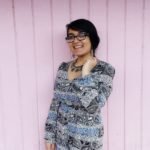Neiha Lasharie: Iqra, The Command To Read
From the very beginning of Islam, it was our lot, as Muslims, to be hyper-aware of our identity. Just as the Prophet (PBUH) was forced to reconcile the truth shown to him with his heritage as part of the Banu Hashim clan and larger Quraysh tribe, so too have modern Muslims been asked to justify our existence, our myriad identities, with what is expected of a Muslim. The expectations go both ways. To be a (young) Muslim in the 21st Century is to constantly be at the periphery: not quite an other, not quite on the inside. Identity, in all its plurality, is central to that confusion.
I define myself as a Muslim woman and a Pakistani; fair enough, Pakistan happens to be an overwhelmingly Muslim country, and there’s about a 1:2 chance you would end up being assigned womanhood at birth. But despite those odds, being a feminist complicates all three identities. A feminist woman? You just want female supremacy. A feminist Pakistani? What does that mean for marriage? For children? And then, the combination that baffles everyone: a feminist Muslim? This is where all the questions of reconciliation seem to come into play. Anger and condescension – surely Islam and feminism are antithetical! What business do I have bringing feminism to Islam? Islam already gave women rights, what more do I want?
What more do I want?
When I was seven-years-old, my father installed a punching bag. It hung from an old Java plum tree in our garden in Lahore. I watched my father go at the punching bag with methodical ferocity, until he beckoned me over. After the basic “girl power” instincts instilled in me by Xena: Warrior Princess, it was my father who put me on track to feminism with a two-part tip: “Rely on yourself for your own defense,” and “Never fold your thumb under the rest of your fingers when you throw a punch. You’ll break your thumb.”
My father taught me self-sufficiency even when all the media around me told me that I would be cared for so long as I stayed respectable and got married at a decent age. When, at fifteen-years-old, I threw my first punch in earnest to defend my friend; I didn’t break my thumb. I got a swollen eye for my troubles, but my thumb was unscathed. Self-sufficiency is only one half of feminism, however. For all my self-sufficiency, I had no punches to throw upon being sexually harassed on the streets of any and every city I have ever lived in, whether Lahore, Dubai, or Boston. My friends who have been sexually assaulted have had no justice for their trauma – those who have received justice have still been shamed for speaking out. At far too young an age, my identity as feminist expanded to encompass a strong desire for justice, recompense.
Islam promised women self-sufficiency and justice. The Prophet (PBUH) lived those ideals, the first Muslim feminist. His wife, Khadija, lived those ideals, the second Muslim feminist, who not only provided for herself, but for her husband. What more do I want?
When the angel Gabriel held the Prophet (PBUH) to his breast, he spoke one of the most important commands that God has willed of all Muslims, “Iqra”: read. We are told to read, not just the Quran, but widely. And what is the greatest exercise of reading if not poetry? What is the Quran if not the ultimate string of poetry? We are not meant to be complacent in our reading, just as the Prophet could not satisfy Gabriel by saying that he could not read. We are meant to delve into the very core of a thing, inhale context, exhale interpretation, inhale, exhale, until we can truly appreciate that Islam is the sum of its parts. When I am told that Islam gave women their rights and I should be satisfied with that, I am – what I am not satisfied with are the Muslims who do not read, who are complacent about the rights granted to women. What more do I want? A true Islamic feminism where the egalitarian virtues of Islam are extolled, internalized, and practiced by all Muslims. I want Muslims to read the feminism inherent in Islam and carve practice out of that reading.
The final evolution of my identity is both a culmination of and a complement to my Muslimness, my Pakistaniat, my feminism – I am a reader and a poet, and the combination thereof makes me an interpreter. When I represent my identities, I do it in the spirit of interpretation; interpretation is an act of reconciliation in and of itself. When my father taught me how to throw a punch, he interpreted the world through a feminist lens and gave me one of the most important lessons of my life. To defend others, I must be self-sufficient; to defend myself, I must not do so at my own expense. When I interpret the Quran, I take another lesson: to defend myself, I must be willing to seek justice for what is done unto me.
My feminism evolves in tandem with my interpretation of the Quran. Interpretation is fundamental to my identity, my future as a political scientist, my relationship to myself and others. The more questions I ask, the more context I seek, the more ways I seek to answer the question, “What more do you want?” the more my identity evolves in its sophistication. My interpretations may relegate me to the periphery of “not-quites” but it is as authentic an identity as I could hope for. Cogito, ergo sum – Iqra, and you will find me.


